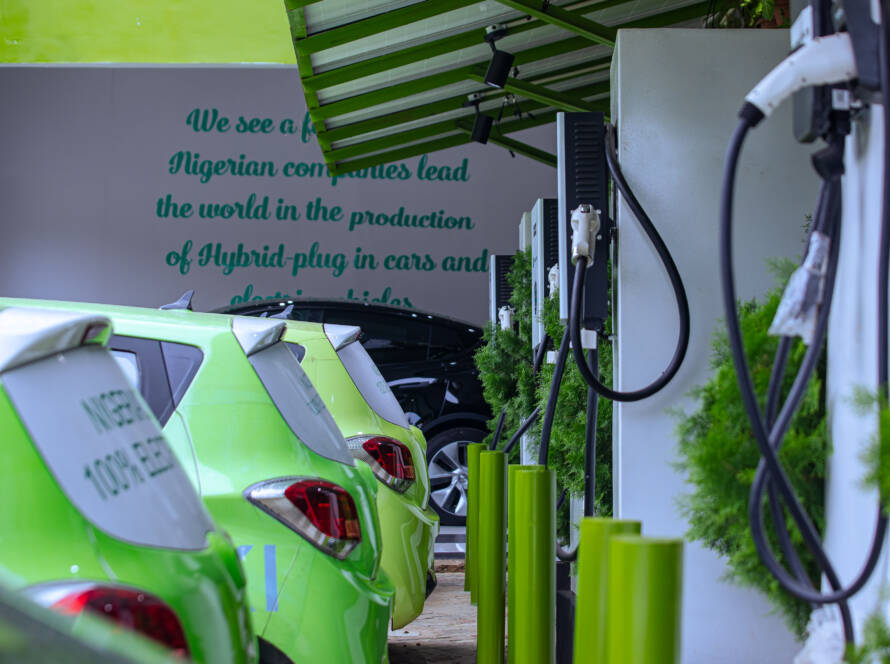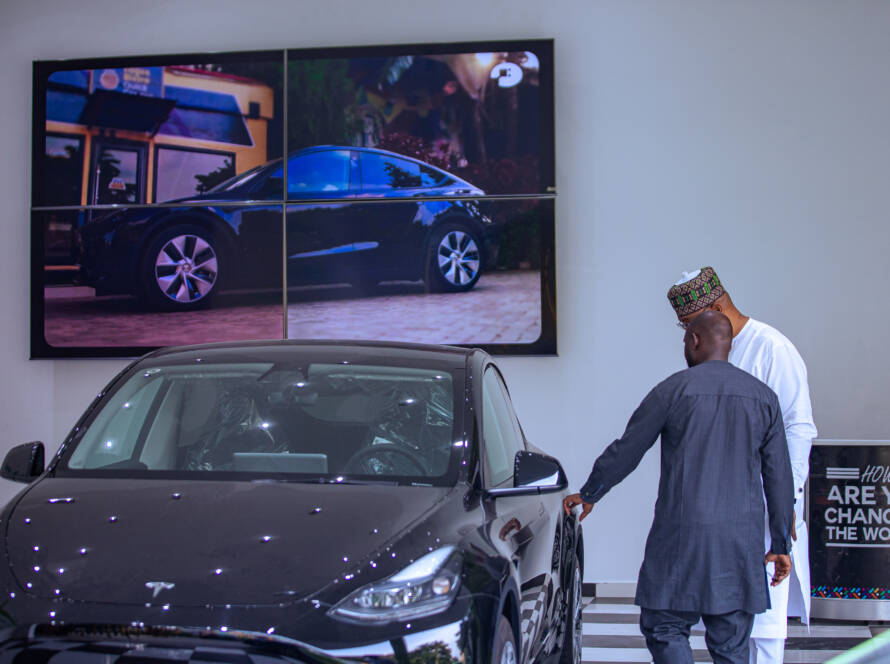By 2050, Nigeria is expected to have a population of 400 million, with 70% living in urban areas and across all major cities in Nigeria. Vehicle fleets and the average number of daily motorized trips are expected to increase by almost 60%. The average Nigerian is projected to cover 12,000 km by 2050, doubling the current figure of 6,000 km.
The anticipated demographic growth and increase in commute time will double the total number of motorized trips, severely hampering the mobility of people, good, and services in the country. Nigeria needs to decongest its urban centers by developing a transport system that accommodates existing demand for road trips and also accounts for projected urban growth and demographic pressure.
To ensure efficient service delivery, the global push toward sustainability has gained significant momentum. And the transport sector plays a crucial role in our sustainable future. The industry alone accounts for about 64% of global fossil-fuel consumption, 27% of all energy use, and 23% of the world’s energy-related carbon dioxide emissions.
Sustainable transportation methods, such as Electric Vehicles (EVs), Plug-in Hybrid Electric Vehicles (PHEVs), and Compressed Natural Gas (CNG) vehicles, are increasingly being adopted as alternatives to the traditional fossil-fuel vehicles that populate our cities today. These innovations are effective ways to reduce greenhouse gas emissions and combat climate change, and they also have the potential to drive sustainable infrastructural development, particularly in sub-Saharan Africa and counties like Nigeria.
In this article, we’ll explore how the adoption of sustainable transportation can lead to various forms of infrastructural growth, from the expansion of road networks to the development of advanced technologies like charging stations and smart roads. We’ll also discuss the broader impact these developments can have on economic growth, urban planning, and public policy.
The road to sustainable transportation
Sustainable transportation systems aim to reduce reliance on fossil-fuel by using alternative energy sources like electricity, natural gas, and green hydrogen, and biogas. EVs and PHEVs rely on electric power, while CNG vehicles use natural gas, which is a cleaner alternative to diesel, petrol, and kerosene. These technologies are increasingly being adopted worldwide, and their adoption is leading to the development of infrastructure that supports their use.
In Nigeria, passenger transport vehicles remain the major contributor to greenhouse gas emissions. The transition to sustainable transport is an environmental necessity and also an economic opportunity.
Developing the Infrastructure for sustainable transport system
What infrastructural gains can Nigeria make from adopting a sustainable transport system?
Charging stations for electric vehicles
One of the most critical infrastructures for the adoption of EVs and PHEVs is a network of charging stations. In countries like the United States and Norway, the widespread availability of charging points has been instrumental in driving EV adoption. Nigeria can follow suit by developing a robust network of charging stations across urban and rural areas. Major industrial town like Lagos, Abuja, Port Harcourt, Kano, Aba, Onitsha, and Ibadan with high traffic flow due to good and services could see the development of EV charging hubs in public places, shopping malls, office complexes, and commercial and highway routes. This would make charging accessible and convenient for urban and rural communities.
For intercity travel, we could develop a network of fast-charging stations along major highways. This would enable long-distance travel in EVs, reduce range anxiety, and foster adoption.
Encouraging the installation of home charging stations, especially in new housing developments, can support the growth of EVs among private car owners. Incentives for homeowners to install chargers could also be introduced.
CNG Refueling Infrastructure
CNG vehicles also need refueling stations. CNG is a cleaner alternative to fossil-fuel, and their adoption could reduce the carbon footprint of Nigeria’s public transport system. It will drive more deployment of CNG refueling stations at key public transport hubs, enabling buses and taxis to refuel easily. In Nigeria already, there are existing incentives for individuals or companies interested in switching to CNG vehicles. For example, all CNG-related equipment imported into the country will be at zero percent duty rate. Companies with large vehicle fleets could be persuaded to switch to CNG using the available incentives, improving their operations and enhancing environmental sustainability.
Development of Smart Roads
Smart roads are an emerging technology that could revolutionize transport infrastructure. These roads are embedded with technologies that can wirelessly charge electric vehicles as they drive, monitor traffic conditions, and communicate with autonomous vehicles. The adoption of a sustainable transport system, particularly electric vehicles, could drive the development of smart roads. These vehicle-charging roads could help service sustainable transport alternatives like EVs and hybrid vehicles (a.k.a. PHEVs), allowing cars and buses to charge while on the move.
Renewable Energy Integration
Sustainable transportation should be supported by clean energy sources. Nigeria has a lot of potential for solar and wind energy. This could be harnessed to power EV charging stations and other transport infrastructure. Our abundant, year-round, sometimes scourging sunlight makes the country ideal for solar-powered EV charging stations. These stations could be deployed in remote areas where grid electricity is unreliable. The coastal areas with strong wind patterns like Yenegoa could benefit from wind energy projects that power public transport systems.
Building a sustainable transport system in Nigeria would reduce our carbon footprint, improve overall air quality, combat climate change, and foster sustainable economic development while positioning the country as a leader in green mobility in Africa.


